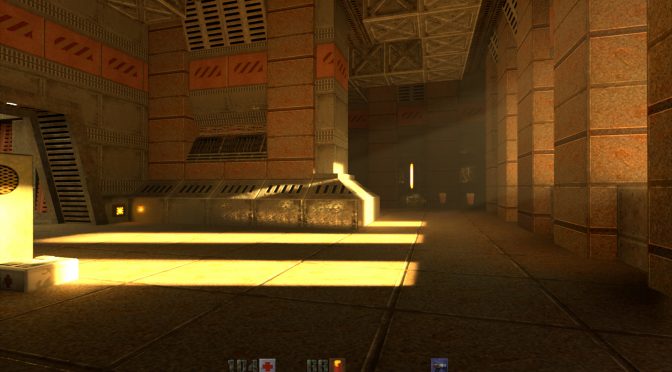NVIDIA has announced that Quake 2 RTX will officially release on June 6th. In order to celebrate this announcement, the green team has also released a brand new trailer for this special version of id Software’s classic shooter that you can view below.
Quake II RTX will feature improved Global Illumination rendering, with three selectable quality presets, including two-bounce GI, multiplayer support, time of day options that radically change the appearance of some levels, as well as new weapon models & textures and new dynamic environments (Stroggos surface, and space).
The game will also sport better physically based atmospheric scattering, including settings for Stroggos sky, real-time reflectivity of the player and weapon model on water and glass surfaces, and player model shadows, for owners of the complete game (the original Shareware release does not include player models), improved ray tracing denoising technology and caustics approximation to improve water lighting effects.
All of the game’s 3,000+ original textures have been updated with a mix of Q2XP mod-pack textures and NVIDIA’s own enhancements. Moreover, Quake 2 RTX will have updated effects with new sprites and particle animations, dynamic lighting for items such as blinking lights, signs, switches, elevators and moving objects, support for the old OpenGL renderer, enabling you to switch between RTX ON and RTX OFF and a Cylindrical projection mode for wide-angle field of view on widescreen displays.
Enjoy!

John is the founder and Editor in Chief at DSOGaming. He is a PC gaming fan and highly supports the modding and indie communities. Before creating DSOGaming, John worked on numerous gaming websites. While he is a die-hard PC gamer, his gaming roots can be found on consoles. John loved – and still does – the 16-bit consoles, and considers SNES to be one of the best consoles. Still, the PC platform won him over consoles. That was mainly due to 3DFX and its iconic dedicated 3D accelerator graphics card, Voodoo 2. John has also written a higher degree thesis on the “The Evolution of PC graphics cards.”
Contact: Email

